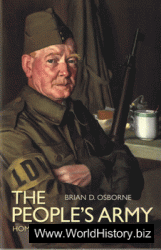Walking around Kiev today, and seeing how many of its Jewish buildings have survived, one might think that it would be relatively easy to reconstruct the history of the Jewish community here. But revolutions, wars, Stalinism, and genocide have taken their toll. The spaces are the same, but you might as well be in Vladivostok for your proximity to the Jewish community that once existed in the city. Just as the city itself is totally transformed, and none of its former spirit can truly be said to remain, so is it with the Jewish community. The decimation is total, and to a certain extent it even extends to the documents of that community. Of the many Jewish institutions in the city, the full records of only two survive. Everything else must be reconstructed using government documents such as petitions and interdepartmental memoranda, newspapers, memoirs, and so on. And even then the picture we get is hazy, only half-there, shimmering in the twilight like the ghost of a friend from the past. What does it mean for the historian, existentially, hermeneutically, to work in an archive with documents from a long-dead community, only several yards away from the killing fields of Babi Yar, where so many members of that community were murdered? What does it mean for the graduate student who is able, with the help of a generous government grant, to rent an apartment in Kiev in the neighborhood where the wealthiest Kiev Jews used to live, steps away from the synagogue attended by the cream of the Jewish elite? Sometimes it seems to mean nothing: the people are long gone, as is the context in which they lived. But the presence of the past is heavy, or perhaps its absence. The historian must acknowledge these burdens, these shadows, these gaps, as he or she sets about to describe this community that once was. How does one give honor to what once was, to the people who inhabited these spaces and created something meaningful that is worth reconstructing, to the extent possible, and understanding, without sentimentalizing, without claiming that this picture is a complete one, that we can ever truly know this time and place, its smells, tastes, joys, sorrows? Nonetheless we forge ahead, trusting the historian's tools, some scientific, some less so, not the least of which is instinct. And detachment, which does not mean a lack of honor for the subject. If we can try to understand the choices that people made and the contingencies and conditions that lay behind those choices, then we will have achieved something.




 World History
World History









